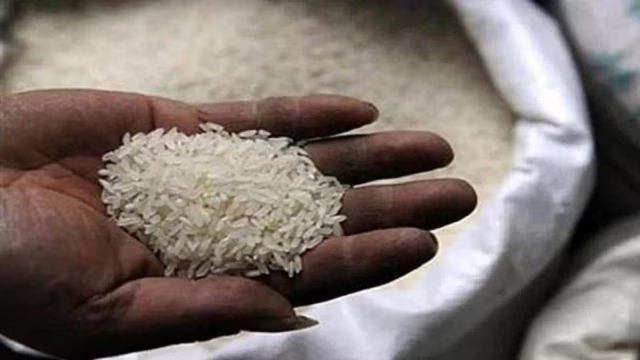Tags
Why Basmati 1509 Prices remain stagnant despite removal of Export Cap, Farmers in Punjab disappointed
Farmers like Amrik Singh from Amritsar are bearing the brunt of these developments. Singh, who sold his Basmati 1509 produce at Rs 2,600 per quintal today, is deeply disappointed.
Written by Anju Agnihotri Chaba

Farmers in Punjab are growing increasingly frustrated as the price of Basmati 1509 remains stubbornly low, despite the removal of the Minimum Export Price (MEP) condition by the Central Government, which was imposed last year. On Wednesday, the prices in the mandis of Amritsar, a key hub for Basmati 1509, hovered between Rs 2,600 and Rs 3,000 per quintal—significantly lower than last year’s price range of Rs 3,500 to Rs 3,600 per quintal by this time.
The MEP, imposed in August 2023, capped the export price of Basmati rice at $1,200 per tonne, which significantly impacted exports. Although this cap was removed in recent weeks, farmers have yet to see any positive impact on prices. The anticipation was that prices would rise after the removal, but the ongoing Israel-Iran conflict has thrown yet another challenge for farmers and exporters alike.
Impact of Global Tensions on Exports
Exporters, who are the primary buyers of Basmati rice, are apprehensive about the impact of the Israel-Iran conflict on international trade, especially since Iran is a major importer of Basmati rice from India. This uncertainty has led exporters to offer lower prices to farmers, fearing that export activities may be disrupted in a war-like situation.
One exporter, speaking anonymously, said, “In case we cannot export to Iran or other countries in the Middle East due to the conflict, we will be forced to sell in the domestic market, where Basmati rice does not fetch the same premium price. Hence, we are unable to offer much to farmers at this time.”
A Bleak Year for Farmers
Farmers like Amrik Singh from Amritsar are bearing the brunt of these developments. Singh, who sold his Basmati 1509 produce at Rs 2,600 per quintal today, is deeply disappointed. “Last year, I received Rs 3,650 per quintal for the same crop, making this year’s loss significant.
“This year, Basmati 1509 prices have remained low from the start of the season, initially due to the ongoing MEP cap and now due to geopolitical tensions. Despite the arrival of around 42 lakh bags of Basmati 1509 at Amritsar’s Bhagtanwala mandi, the prices remain far below what farmers expected. The price of this variety is the lowest in four years,” said Rakesh Tuli, president of the Punjab Anaaj Mandi Mazdoor Union.
“The situation is further aggravated by the fact that Basmati rice, unlike non-Basmati paddy, is not procured by the government. Private traders and exporters set the price based on international demand, leaving farmers at their mercy. With Basmati consumption in India accounting for less than 10% of total rice consumption, there is little incentive for traders to pay higher prices when export prospects are uncertain,” said Tuli.“Tomorrow, if we cannot export, we will be forced to sell domestically, where prices are not as high as in international markets,” explained an exporter, adding that international demand dictates the price farmers receive.
Farmers are now calling on the government to intervene. They allege that traders are purchasing Basmati rice at low prices and selling it at a much higher rate to consumers, further squeezing the already thin margins for farmers. “The government needs to step in and ensure traders do not exploit farmers by purchasing at lower rates,” demanded farmers Harminder Singh at Amritsar mandi.
Meanwhile, Member of the Punjab Legislative Assembly from Kapurthala, Rana Gurjeet Singh, today called for support from the Government of India and the Punjab government for the state’s basmati growers. He highlighted that basmati prices this season have dropped by 40% compared to last year.
Rana Gurjeet Singh criticized the Punjab government for urging farmers to diversify from water-intensive paddy (parmal) to crops like basmati, only for the prices to fall short of covering farmers’ hard work and input costs.“The Punjab government promised to create a corpus fund to support crops other than paddy and wheat, which are covered under the Minimum Support Price (MSP). Now that farmers have taken the risk to diversify, the government must step in to support them,” said Gurjeet Singh. He also urged the Agricultural and Processed Food Products Export Development Authority (APEDA), an entity of the Government of India, to facilitate basmati growers.
He emphasized that basmati exports generate Rs. 48,000 crore in foreign exchange annually and help conserve groundwater, which is depleting at an alarming rate.
The MLA noted that with farmers’ efforts, the area under basmati cultivation has increased by 84,000 hectares, reaching 6.80 lakh hectares. “However, the ongoing war between Israel and Iran has increased logistics costs and led to a drop in orders from Middle Eastern countries,” he said.
Iran, which usually imports 4 lakh tons of basmati, has placed orders for just 1 lakh tons this year, driving prices down. “Farmers are being forced to sell their produce at distress prices. It is the government’s duty to support them,” said Rana Gurjeet Singh, adding that basmati is being sold at Rs. 3,300 per quintal—Rs. 2,000 per quintal less than last year’s price.
He warned that if the government does not help basmati growers, farmers may return to cultivating water-intensive paddy next year, as seen in southwest Punjab with cotton. This year, the area under paddy cultivation has risen to 32 lakh hectares.
https://indianexpress.com/article/cities/chandigarh/why-basmati-1509-prices-remain-stagnant-despite-removal-of-export-ca-9615066/Published Date: October 11, 2024






